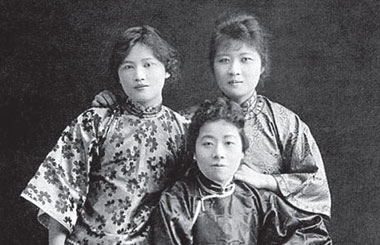The tribunal's award in the 'South China Sea Arbitration' initiated by the Philippines is null and void
Updated: 2016-06-10 14:30
By Chinese Society of International Law(www.csil.cn)
|
|||||||||
VI. The Arbitral Tribunal is neither objective nor impartial, and its Award deviates from the object and purpose of the dispute settlement mechanism of the UNCLOS and impairs the integrity and authority of the Convention
1. The Arbitral Tribunal is neither objective nor impartial in applying the law and determining the facts
The UNCLOS is a package-deal instrument. It affirms in the Preamble that "the problems of ocean space are closely interrelated and need to be considered as a whole". As also stated by Ambassador Tommy Koh, President of the Third United Nations Conference on the Law of the Sea, when the Convention was adopted, "the Convention consists of a series of compromises and many packages ... they form an integral whole. This is why the Convention does not provide for reservations. It is therefore not possible for States to pick what they like and to disregard what they do not like" (The Third United Nations Conference on the Law of the Sea, 185th Plenary Meeting, U.N. Doc.A/CONF.62/SR.185, p.14, para.53). In the present Arbitration, the integrity of the UNCLOS is impaired by the Tribunal which interprets and applies its relevant provisions in such a manner that it isolated the issues of the status and maritime entitlements of certain features from the sovereignty over the features and from maritime delimitation.
The Tribunal applies double standards in the interpretation and application of the relevant rules. In its reference to relevant international arbitration cases, the Tribunal deliberately discards majority decisions or opinions that are to the disadvantage of the Philippines, but follows the minority opinion that is in favor of it (See Award, para.223). While declaring its willingness to treat China's Position Paper as constituting a plea concerning jurisdiction, it practically disregards or overlooks China's positions expressed therein, thus failing to fulfill the duty of safeguarding the procedural and substantive rights enjoyed by the State not appearing before the Tribunal. The Award even contravenes the customary rules on treaty interpretation as codified in Article 31 of the Vienna Convention on the Law of Treaties in the interpretation of relevant provisions of the UNCLOS, thus impairing the effectiveness of the Convention. For instance, such provisions as Articles 281, 283 and 298 are not interpreted in accordance with the ordinary meaning of the terms and the drafters' intention.
The Tribunal is clearly not impartial in determining the facts. Facts advantageous to China are either ignored deliberately, or only briefly mentioned in order to downgrade their value in the present Arbitration. For instance, the Tribunal disregards the fact of integral wholeness of claims to Nansha Islands as consistently maintained by China. Nonetheless, the Tribunal persisted in dealing with the status and maritime entitlements of relevant individual features of the Nansha Islands as separate single features (See Award, paras.169-171). The Tribunal disregards the fact that the Philippines abandoned the consensus with China to settle relevant maritime disputes through negotiation, and arbitrarily denies the validity of the agreement between the two sides. The acts of the Tribunal deviate from the spirit of equality and justice in international law.
In handling evidence, the Tribunal did not comply with internationally prevalent rules. As indicated by the ICJ, the determination that a claim is "well founded in fact" shall be supported by "convincing evidence", and the same degree of certainty must be attained in the case where a State has chosen not to appear (Military and Paramilitary Activities in and against Nicaragua (Nicaragua v. United States of America), Merits, Judgment, I.C.J. Reports 1986, p.24, paras.28-29). Such a standard also applies at the stage of preliminary objections. The Court also pointed out that "[i]t is a general principle of law, confirmed by the jurisprudence of this Court, that a party which advances a point of fact in support of its claim must establish that fact" (Sovereignty over Pedra Branca/Pulau Batu Puteh, Middle Rocks and South Ledge (Malaysia/Singapore), Judgment, I.C.J. Reports 2008, p.31, para.45). In the present Arbitration, the Rules of Procedure adopted by the Tribunal provide that "[t]he Arbitral Tribunal shall determine the admissibility, relevance, materiality, and weight of the evidence adduced" (Article 22(7)). However, it did not follow the above requirements, especially in that its standards for determination of evidence are not transparent and the evidence that it admitted is unconvincing. For instance, in its analysis of the Philippines' claims concerning "historic rights" and the status of certain maritime features, the Tribunal erroneously determines that the relevant claims constitute disputes between China and the Philippines concerning the interpretation or application of the UNCLOS, on the basis of evidence that is irrelevant and weightless (See Award, paras.164-171). In addition, in its analysis on whether the Philippines has fulfilled the obligation to exchange views, it even accepts at face value the Philippines' one-sided records of bilateral consultations with China, which are lack of materiality and weight (See Award, paras.334, 337), which is far from convincing.
2. The Arbitral Tribunal's exercise of jurisdiction ultra vires over the case impairs the right of States Parties to the UNCLOS to choose freely the means of disputes settlement and destroys the priority of means of their own choice
The UNCLOS lays down a two-tier dispute settlement mechanism, in which the means of the Parties' own choice takes priority and compulsory procedures play a complementary role (See Thomas A. Mensah, "The Dispute Settlement Regime of the 1982 United Nations Convention of the Law of the Sea", Max Planck Yearbook of United Nations Law (1998), p.309; Yoshifumi Tanaka, The International Law of the Sea (Cambridge University Press, 2nd edn., 2015), p.420). The parties concerned shall settle disputes concerning the interpretation or application of the UNCLOS through peaceful means of their own choice. Only when no settlement is reached by recourse to such means, and certain preconditions are met, can compulsory third-party procedures be resorted to.
The parties to a dispute remain the complete masters of means of its settlement. The Convention confirms that nothing in Part XV impairs the right of States Parties to settle a dispute by any peaceful means of their own choice (UNCLOS, art.280). It further provides that, before resorting to compulsory procedures, States have the right to freely choose means of dispute settlement. They can either select peaceful means as indicated in Article 33(1) of the UN Charter (UNCLOS, art.279), or resort to the means of dispute settlement of their own choice as provided for in the UNCLOS, including the obligation to exchange views (UNCLOS, art.283). States have the right to choose dispute settlement procedures by agreement (UNCLOS, art.281), or to submit the dispute to a procedure that entails a binding decision (UNCLOS, art.282). The Convention allows States Parties to declare in writing to exclude the applicability of compulsory procedures with respect to disputes concerning, inter alia, maritime delimitation (UNCLOS, art.298). It also provides that compulsory procedures can only be resorted to where no settlement has been reached through means of the parties' own choice, and are subject to limitations and exceptions provided for by the Convention (UNCLOS, art.286). The above provisions evince the Convention's respect for and safeguard of the right of its States Parties to freely choose means to settle their disputes and the priority of such means of their choice. As Robin Churchill and Vaughan Lowe wrote, "it is important to recognise that those compulsory procedures are of secondary importance", and "[o]nly where settlement is not possible by means freely chosen by the parties to the dispute do the elaborate compulsory dispute settlement provisions of the 1982 Convention come into play" (Robin Churchill and Vaughan Lowe, The Law of the Sea (Manchester University Press, 3rd edn., 1999), p.454).
In particular, it should be pointed out that Article 298 of the UNCLOS allows States Parties to declare in writing, at any time, that they do not accept compulsory third-party procedures with respect to disputes concerning, inter alia, maritime delimitation. It shows that on issues concerning national sovereignty and sovereign rights and interests such as maritime delimitation, the Convention gives more freedom to the States Parties in the choice of means of dispute settlement. Therefore, in its determination of jurisdiction, the Tribunal must act prudently to safeguard the right of States Parties to freely choose the means of dispute settlement.
In an attempt to justify its establishment of jurisdiction, the Tribunal, instead of acting prudently, makes every effort to expand and misuse its power arbitrarily, and to lower the threshold to the applicability of arbitration under Annex VII of the UNCLOS. It denies the fact that China and the Philippines had agreed to settle relevant disputes through negotiation, and willfully narrows down the scope of exclusions made by China in its 2006 Declaration. The vicious precedent that it set may open the "floodgate of abuse lawsuits" regarding maritime disputes, which will not only impair China's vital and lawful rights and interests, but also have an impact beyond the inter-parte relationship. It will impair the vital interests of States Parties in peaceful dispute settlement under the UNCLOS, especially the right to freely choose the means of dispute settlement. Accordingly, it will damage the international legal order of the oceans and harm the overall interest of the international community.
3. The Arbitral Tribunal acts contrary to the fundamental purpose of the dispute settlement mechanism under the UNCLOS
The fundamental purpose of the dispute settlement mechanism under the UNCLOS, as a component of the modern legal order of the oceans established by the Convention, is to contribute to the settlement of maritime disputes peacefully. The Convention proclaims in its Preamble the common belief among States Parties that "the codification and progressive development of the law of the sea achieved in this Convention will contribute to the strengthening of peace, security, cooperation and friendly relations among all nations ...". Part XV of the Convention is dedicated to the "Settlement of Disputes", in which Article 279 obliges States Parties to settle their disputes concerning the interpretation or application of the Convention in accordance with the principle of peaceful settlement of disputes under Article 2(3) of the UN Charter, and through peaceful means indicated in its Article 33(1). Therefore, in its settlement of disputes concerning the interpretation or application of the UNCLOS, the Tribunal shall be oriented towards resolving disputes and reconciling conflicts, so as to achieve its objectives of peaceful settlement of disputes and the promotion of friendly relations and cooperation between States.
Vital to the achievement of the above objectives is to interpret and apply the dispute settlement mechanism provided for in the UNCLOS in good faith and in a comprehensive and integral manner. As a matter of fact, on issues of core national interests such as territorial sovereignty, no State will accept the jurisdiction of a third-party mechanism that is not chosen by it voluntarily, not to mention accepting solutions imposed by such a mechanism. To persist in revolving issues such as territorial sovereignty, which are beyond the competence of the Tribunal, when the dispute settlement mechanism under the UNCLOS is abused, will make no contribution to the settlement of disputes, but can only intensify the conflicts and further complicate the situations.
In the present Arbitration, by unlawfully initiating the Arbitration, the Philippines seeks not to settle its disputes with China in the South China Sea in good faith, but to obtain bargaining chips in its quest for unlawful interests in the South China Sea. The Tribunal's tolerance of the Philippines' unlawful behaviors and its exercise of jurisdiction ultra vires have intensified rather than resolved the disagreements between China and the Philippines on relevant issues in the South China Sea, and have aggravated rather than alleviated the tense situation in the South China Sea. These acts of the Tribunal run counter to the fundament purpose of peaceful settlement of disputes of the UNCLOS.
In conclusion, the Tribunal's establishment of jurisdiction over the Philippines' claims is completely erroneous. It disregards the fact and distorts the law so as to exercise jurisdiction ultra vires, beyond the authorization of the UNCLOS. It is obvious that the Tribunal does not act with impartiality and reasonable diligence, and makes an essentially political award. The Tribunal's exercise of jurisdiction ultra vires has been questioned by a number of scholars of international law from China and abroad. Ex injuria jus non oritur. As the Tribunal unlawfully exercises jurisdiction over subject-matters which are manifestly beyond its competence, none of the further procedures that it takes or may take and the views that it expresses or may express has any legal basis. Any decision that the Tribunal may make on the substantive issues will not have any legal effect. China's non-acceptance of and non-participation in the Arbitration and its non-recognition of any award made or to be made by the Tribunal have solid legal basis, and are acts of justice to maintain and uphold international law.
(Source: www.csil.cn)
Related Stories
Chinese Embassy refutes Wall Street Journal's editorial on South China Sea 2016-06-10 10:56
China, ASEAN nations vow to effectively implement DOC on South China Sea 2016-06-10 02:25
Government of the Republic of Kenya statement on South China Sea 2016-06-09 14:34
The South China Sea dispute: Beijing's view 2016-06-08 20:43
How to bridge the divide over the South China Sea 2016-06-08 20:31
Today's Top News
China lists first sovereign offshore RMB bond on LSE
British PM denounces Brexit's 'complete untruths'
47% of European businesses would expand in China
Xi urges Washington to boost trust
Council of Europe unveils security convention
Former PM warns of chaos in case of Brexit
Basic income plan rejected by Swiss voters
Eyeing the goal in European football
Hot Topics
Lunar probe , China growth forecasts, Emission rules get tougher, China seen through 'colored lens', International board,
Editor's Picks

|

|

|

|

|

|







